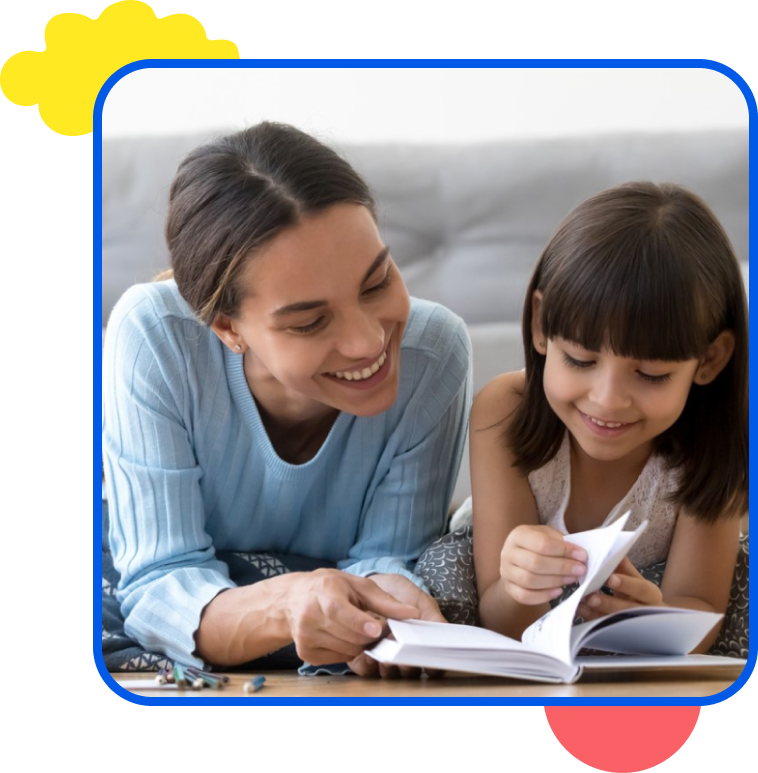Is French Hard to Learn for Native English-Speaking Children?



Want to give your kid the advantage of being bilingual in French and English? If so, you may wonder, “Is French hard to learn?” and worry that your child might struggle.
In this blog post, we’ll explore the difficulty of learning French and provide some tips and advice for parents considering signing up their child for French classes.
Our goal is to help you decide whether French is right for your child and give you the tools you need to support your child’s journey into bilingualism.
Let’s get started!
Is French hard to learn?
It’s true. French can be challenging, especially for monolingual native English speakers, but don’t let that scare you off! With the proper support and resources, your child can become a proficient French speaker and open up a world of opportunities.
But what makes French hard to learn?
French grammar rules
French has complex grammar rules that can be tough for children and adults to wrap their heads around. What do we mean?
Well, for starters, unlike English, French nouns have genders. That means some words can be masculine or feminine. For example, “la maison” (the house) is feminine, while “le livre” (the book) is masculine. French speakers must also change the spelling of adjectives depending on whether they describe a masculine or feminine noun.
French also has some tricky verb conjugations, which require learners to memorize multiple conjugations for each verb. For example, here’s how you’d conjugate the verb “parler” (to speak) in the present tense:
- Je parle (I speak)
- Tu parles (You speak, informal)
- Il/Elle parle (He/She speaks)
- Nous parlons (We speak)
- Vous parlez (You speak, formal)
- Ils/Elles parlent (They speak)
In addition to memorizing verb conjugations, learners must use the correct verb tense depending on when something happened or will happen. This can be especially tricky for younger learners who aren’t familiar with romance languages and have yet to develop a strong understanding of time.
These are just a few examples of what can initially make French grammar rules challenging. However, with the proper instruction and practice, your child can develop a solid understanding of French grammar in no time!
French pronunciation
French has several sounds and pronunciation rules that are different from those in English, which can make it difficult for your child to produce the correct sounds at first.
One of the unique features of French pronunciation is its nasal vowels, which native speakers pronounce with a distinct nasal quality that can be challenging for English speakers to replicate. French also has silent letters and liaisons, where the pronunciation of one word can affect the pronunciation of the following word.
French also has several sounds similar to English sounds, but with subtle differences in pronunciation that can be difficult to master. For example, the French “r” sound has a distinctive throaty pronunciation not found in English. The French “u” sound is also pronounced differently than in English, with the lips pursed and the tongue pushed toward the front of the mouth.
However, with consistent practice and exposure to the French language, your child can master these unique sounds and pronunciation rules.
French spelling
French uses a lot of diacritical marks (such as accents and cedillas) that can change the pronunciation and meaning of words. There are also a lot of irregularities and exceptions to spelling rules that can be frustrating for learners.
For example, French learners sometimes struggle with “silent letters,” like in the word “hôtel” (hotel), or words where the same letter is pronounced differently, like “moulin” (mill).
Writing in any foreign language can be intimidating, but your child can become a confident French speller with enough practice and guidance. Many French language classes for kids offer fun writing activities and exercises that can help your child practice their spelling skills.
Despite these challenges, learning French can be an incredibly valuable and rewarding experience for your child. So, if you’re considering French classes for your child, don’t let the idea of a difficult language hold your child back!
Benefits of learning French for children
Learning French can bring many benefits to children, both in their personal and professional lives. By giving your child the opportunity to learn French, you’re also giving them the gift of language and all the beautiful experiences that come with it.
Here are just a few reasons why learning French is an excellent choice for kids:
Great for your child’s cognitive development
Learning a second language at a young age has been shown to have numerous cognitive benefits. Studies on the benefits of bilingualism have found that bilingual children have improved memory, problem-solving skills, and multitasking abilities. Learning a second language has also been linked to better academic performance in other subjects, such as math and science.
More career opportunities in the future
In today’s globalized world, being bilingual is a huge asset in the job market. French is spoken in many countries and is an official language of international organizations such as the United Nations.
When your child reaches adulthood, knowing how to speak French fluently can open up job opportunities in various fields, such as international business, diplomacy, and tourism. Bilingual employees are also in high demand and may receive higher salaries than their monolingual peers.
Cultural immersion and global mindset
Learning French also allows children to immerse themselves in the rich culture of French-speaking countries. By learning the language, they can appreciate French literature, music, and art in their original form.
They can also better understand and appreciate the customs and traditions of French-speaking cultures. Understanding different cultures can also broaden their perspectives and help them develop empathy and understanding for people from all walks of life.
Learning a new language can be a lot of fun
Learning French can also be a lot of fun! French is a beautiful and melodic language, and children can enjoy learning it through songs, games, and other interactive activities.
At Bilingual Bebe, students and parents report many positive experiences around learning the language. Kids have fun in class and enjoy the challenge of mastering a new skill, while parents often say that their children feel encouraged by the language learning process.
Tips for parents who want their kids to learn French
Learning a new language takes time and effort, but it can also be a fun and rewarding experience with the right tools and mindset! Here are a few tips to make the process easier and more enjoyable for your child:
Practice speaking French with native speakers
Speaking is an integral part of the language learning process, and it can be challenging to practice speaking with native speakers if you don’t live in a French-speaking country. Fortunately, you can find opportunities for your child to practice speaking French in your local community or online!
Look for local language exchange programs, online language learning communities, or online language classes for kids. You might also find a French-speaking friend or family member for your child to practice with.
No matter which method you choose, this tip is essential! Speaking with native speakers will help your child develop natural-sounding pronunciation and become more confident in their French language skills.
Resources
- Learning French for Kids: A Resource Guide for Parents
- 200+ Easy French Words for Kids [+ Tips on How to Memorize Vocabulary Quickly]
Immerse your child in the French language and culture
Surrounding your child with French as much as possible will help them develop a natural understanding of the language. Encourage your child to listen to French music, watch French movies or TV shows, and read French books.
Doing so will engage them with the language and help them develop a better understanding of the mechanics of the French language and French culture.
The more your child has exposure to French, the more comfortable and confident they will become with the language.
Resources
- 6 French Poems for kids by age group (+ where to find them online)
- 24 French Cartoons for Kids (+ Where to Watch Them Online)
- The Best French Children’s Books
- French YouTube Channels for Kids
- Popular French Songs for Kids
Make it fun to learn French
Learning French doesn’t have to feel like a chore! When you make learning French fun and exciting, your child will be more motivated to keep going and tackle their language learning goals.
Incorporate fun activities into your child’s language learning routine, such as playing games, cooking French cuisine, or taking virtual tours of French museums and landmarks. These activities may not seem like traditional language learning activities, but they can be a great way to help kids learn French in an engaging and meaningful way.
Resources
Use language learning apps
There are many language learning apps available that can be a fun and interactive way to learn French, with features such as games, quizzes, and progress tracking. Popular apps for French learners include Duolingo, Babbel, and Rosetta Stone.
However, it’s important to note that language learning apps have limitations. For example, most language apps won’t give your child the opportunity to practice speaking with native French speakers. The apps also don’t provide the same level of guidance and support that a real teacher can give regarding pronunciation and grammar.
So, it’s best to use these apps in conjunction with other language learning activities, such as group language classes or one-on-one tutoring.
Learn more
Be consistent with study time
Consistent practice is crucial when learning a new language and will help your child make progress faster and more efficiently. Set aside regular study sessions and encourage your child to stick to them as much as possible.
How often and how long should each study session be? It will depend on your child’s age and language learning goals. Younger children might benefit from shorter, more frequent study sessions, while older or more advanced learners may require longer ones.
Regardless of your child’s age and language level, give them adequate time to practice their new language. At Bilingual Bebe, all students attend at least one 45-minute language class weekly. Even with just one session per week, our students make consistent, measurable progress.
Resources
- Raising Bilingual Preschoolers In A Monolingual Household
- 9 Tips For Teaching French To Preschoolers
Final thoughts
Learning French can be a challenging but rewarding experience for children. While the grammar rules, pronunciation, and spelling can seem overwhelming at first, the benefits of bilingualism make it all worth it!
If you are a parent considering signing your child up for French classes, we hope the tips and strategies we’ve shared can help make the learning process easier and more enjoyable for your child.
At LingoCircle, we offer online French classes for kids ages 3-15. Our certified and native French-speaking teachers use fun, interactive activities to engage children in the learning process.
Consider signing up your child for one of our classes to give them the best chance at becoming proficient French speakers and reaping the long-term benefits of bilingualism. You can even get the first lesson for free!


Simple Ways to Learn a Second Language at Home
Get resources and tips to help supplement your bilingual education journey at home.
By providing your email you are signing up to receive emails from Bilingual Bebe. Privacy Policy






